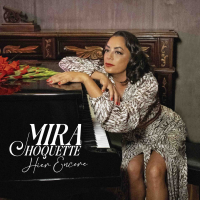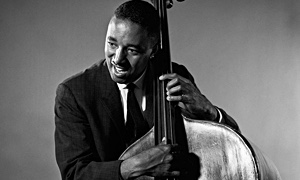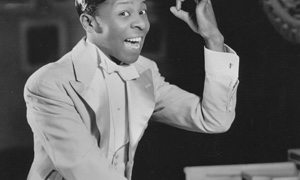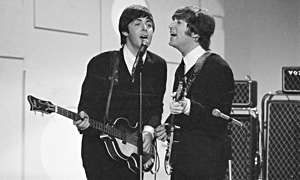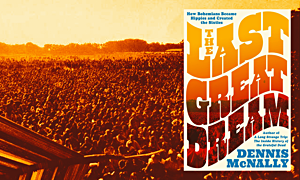Home » Jazz Articles » Book Review » Charles Lloyd: A Wild, Blatant Truth
Charles Lloyd: A Wild, Blatant Truth
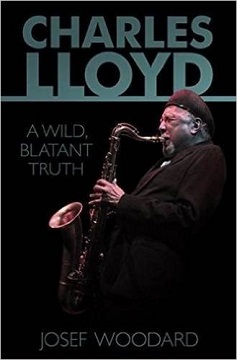 Charles Lloyd: A Wild, Blatant Truth
Charles Lloyd: A Wild, Blatant Truth Josef Woodard
229 Pages
ISBN: 978-1-935247-13-5
Silman-James Press
2016
A book on Charles Lloyd—one of the most celebrated and enigmatic jazz musicians of the past fifty years—has been a long time coming. It's been a while in the making too, for author Josef Woodard spent twenty five years doing the groundwork, repeatedly interviewing Lloyd, following his career for Downbeat/JazzTimes and other publications and even traveling on tour with the saxophonist. Few writers have enjoyed such sustained access to Lloyd or earned his trust to such an extent, and the result is a fascinating portrait of a singular figure.
Part biography, large part first person testimony, the picture that emerges of Lloyd is a complex mosaic: a musician nurtured by the love of music yet ill at ease with the business surrounding it; a man whose love of nature/meditative reclusion seems at odds with the demands of constantly touring the world; a man guided by spiritual concerns yet with an abiding interest in real estate.
Of course, no personality can be captured by such facile reductions, least of all Lloyd, who was that rarest of beasts while still in his twenties -a million-selling jazz artist. At the height of his 1960s success, Lloyd was seen by many as some kind of shamanistic guru, yet with the world at his feet Lloyd famously turned his back on jazz and the music industry for over a decade. His return to the stage in the 1980s has been well documented on record, in film and in the jazz media, but not until now has Lloyd's personal story—his inner cogs—been so thoroughly subjected to analysis within such a career-spanning narrative.
Raised in the racially conflictive Memphis of the 1930s in a family of mixed races, and with a mother largely absent from his life, Lloyd's early emotional topography seems to have sculpted his choices ever since. This part of the book is particularly revealing, for despite his challenging surroundings and personal circumstances, Lloyd was, by his own account, destined for a career in music. Enchanted by the music he heard on the radio as a kid, Lloyd wanted a saxophone from a very early age. "It took me until I was nine years old to convince my parents to get me one," he tells Woodard.
Remarkably, Lloyd was playing clubs across Memphis nightly from nine pm to four am, before he was ten years old, in a world, as he puts it, of gambling, gunshots and cotton warehouses by the Mississippi docks. "I was pretty much playing every night of my life and shedding every day."
Lloyd's grounding in the blues, R&B and rock 'n' roll of the day, playing in the bands of
Johnny Ace
bassb.1929

B.B. King
guitar, electric1925 - 2015

Bobby Blue Bland
vocals1930 - 2013

Rosco Gordon
piano1928 - 2002

Howlin' Wolf
vocals1910 - 1976
A Wild Blatant Truth is also about Lloyd's sound; the tenderness, the keening spirituality and the wilder flights are just the songs of his soul: "I wanted to be a singer but I didn't have the voice. That's why I had to get a horn. That's what I'm trying to do on the horn—trying to sing."
Often compared by critics to

John Coltrane
saxophone1926 - 1967

Charlie Parker
saxophone, alto1920 - 1955

Dizzy Gillespie
trumpet1917 - 1993
Lloyd's love of classical music led him to study at USC, California in 1956, though jazz was his calling and an early band included

Bobby Hutcherson
vibraphone1941 - 2016

Scott LaFaro
bass1936 - 1961

Billy Higgins
drums1936 - 2001

Don Cherry
trumpet1936 - 1995

Eric Dolphy
woodwinds1928 - 1964

Ornette Coleman
saxophone, alto1930 - 2015

Ellis Marsalis
piano1934 - 2020

Gerald Wilson
composer / conductor1918 - 2014
When Dolphy left

Chico Hamilton
drums1921 - 2013

Buddy Collette
saxophone, tenor1921 - 2010

Cannonball Adderley
saxophone1928 - 1975
From early on, however, Lloyd fronted his own groups. Several years before his classic, mid/late 1960s quartet, Lloyd's New York bands contained the likes of

Herbie Hancock
pianob.1940

Pete La Roca
drums1938 - 2012

Ron Carter
bassb.1937

Henry Grimes
bass, acoustic1935 - 2020
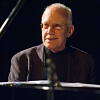
Steve Kuhn
pianob.1938

Joe Chambers
drumsb.1942

Miles Davis
trumpet1926 - 1991
Lloyd sheds most light on his important quartets. Of the classic 1960s line-up of

Keith Jarrett
pianob.1945

Jack DeJohnette
drumsb.1942

Cecil McBee
bassb.1935
Regardless, the success of Forest Flower... meant that the corporate vultures were soon swarming overhead: ..."they were trying to take my music into arenas," recalls Lloyd, who also recoiled from clubs with their alcohol- fuelled patrons. But success came at a price: "I had lots of excess," Lloyd confides to Woodard. "Life on the road, life in the fast lane, had become unsavoury. I was suffering inside and out. The music was suffering."
Drugs, adulation, manipulation and money come across as the four Horsemen of the Apocalypse that would drive Lloyd to all but abandon public performance and seek reclusion, although the emotional dislocation at the death of his mother and of his childhood friend

Booker Little
trumpet1938 - 1961
Lloyd had certainly become disenchanted with the music business and retreated to Big Sur, California, where he delved deeply into transcendental meditation for the next decade, surfacing only occasionally to record infrequent and fairly esoteric albums -music, Lloyd admits, that wasn't always of great value. Notably, Lloyd collaborated on record and on stage with The Beach Boys. Although his dealings with the business savvy Beach Boy Mike Love—and his relationship with the band—come across as ambiguous to say the least: "Hearing that some Beach Boy wants to talk to you, it's machete time," Lloyd tells the author. "Those guys put a surfboard on Chuck Berry and the Four Freshmen."
If Lloyd's retreat from the music business in the 1970s was to reconstitute himself spiritually through a simpler life, it seems to have worked. "Those years of solitude were prayerful for me," Lloyd recalls. "Since I wasn't doing any music, I had to take those years to try to change my character. I knew if I could do that, it would affect the music, without question. You are what you eat."
Spiritually well-fed, Lloyd was persuaded out of his effective retirement in 1983 by

Michel Petrucciani
piano1962 - 1999
The Cobra's bite—the lure of the road and the resumption of Lloyd's recording career—would see Lloyd sign for Manfred Eicher's ECM label in the late 1980s, where he would go on to record some fifteen albums to critical acclaim. Lloyd is fulsome in his praise of Eicher as a person, his telling contribution in the studio and the artistic carte blanche the ECM head honcho extended to Lloyd.
Some of Lloyd's most beguiling works have been his diversions from the quartet format, particularly Sangam (ECM, 2006) with

Zakir Hussain
tablas1951 - 2024

Eric Harland
drumsb.1976

Billy Higgins
drums1936 - 2001

Jason Moran
pianob.1975
Lloyd speaks at length with the author about his relationship with the key musical personalities during the ECM years -Hussain, Harland,

John Abercrombie
guitar1944 - 2017

Bobo Stenson
pianob.1944
In the end, what comes across in these pages, more so than any of Lloyd's often circuitous musings on spirituality, or the key events and personalities in his life, is his deep devotion to the music. "I'm still drunk with the love of the music," Lloyd told Woodard in a 2010 interview. "I approach the bandstand with the beginner's mind each night, and hope that I will be met along the way. I hoist my sails to make ready for the winds of grace."
Tags
Comments
PREVIOUS / NEXT
Charles Lloyd Concerts
Charles Lloyd Sky Trio Featuring Larry Grenadier &...
Soka Performing Arts CenterAliso Viejo, CA
Support All About Jazz
 All About Jazz has been a pillar of jazz since 1995, championing it as an art form and, more importantly, supporting the musicians who make it. Our enduring commitment has made "AAJ" one of the most culturally important websites of its kind, read by hundreds of thousands of fans, musicians and industry figures every month.
All About Jazz has been a pillar of jazz since 1995, championing it as an art form and, more importantly, supporting the musicians who make it. Our enduring commitment has made "AAJ" one of the most culturally important websites of its kind, read by hundreds of thousands of fans, musicians and industry figures every month.
Go Ad Free!
To maintain our platform while developing new means to foster jazz discovery and connectivity, we need your help. You can become a sustaining member for as little as $20 and in return, we'll immediately hide those pesky ads plus provide access to future articles for a full year. This winning combination vastly improves your AAJ experience and allow us to vigorously build on the pioneering work we first started in 1995. So enjoy an ad-free AAJ experience and help us remain a positive beacon for jazz by making a donation today.
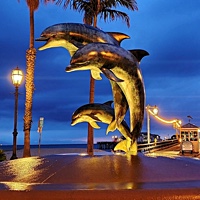
Santa Barbara
Concert Guide | Venue Guide | Local Businesses
| More...






 Buy Now
Buy Now



